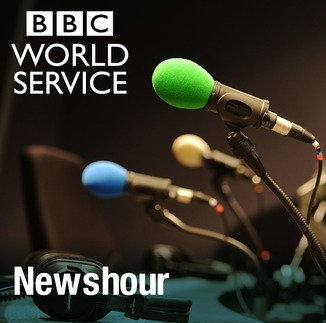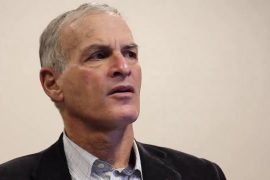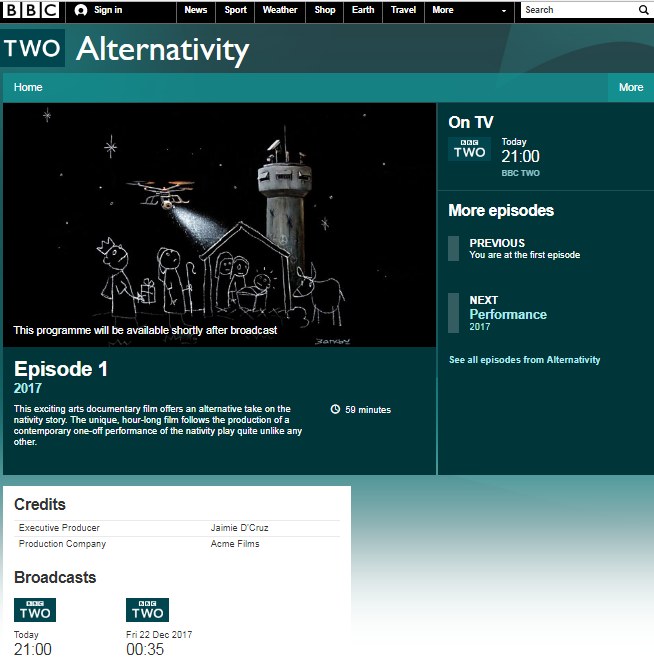In part one of this post we looked at the first half of a long item (from 14:05 here) that was aired on the November 25th afternoon edition of the BBC World Service radio programme ‘Newshour’ and which related to the ‘Human Rights Watch’ employee Omar Shakir whose work visa was not renewed by the Israeli authorities in May 2018 and who – following several court cases – left the country on that day.
Presenter Razia Iqbal continued, providing the cue for another HRW talking point.
Iqbal: “There is a suggestion that the case against Omar Shakir was initially based on statements that he had made in support of a boycott before he took on his role with Human Rights Watch. Is that true?”
Roth: “The Israeli government really kind of resurrected these statements that he had made when he was a university student years ago. But even the government made clear that the anti-BDS law is supposed to be preventative – it’s supposed to look to the future. It’s not supposed to be punitive. So in fact, you know, whatever Omar Shakir said back in his university days is irrelevant. Everything he has done since joining Human Rights Watch – as any Human Rights Watch employee – strictly adheres to Human Rights Watch policy which is not to endorse BDS, it is not to call for boycott. So this is, you know, not about BDS. This is about trying to shut down mainstream human rights advocacy.”
Iqbal made no effort to challenge that spin or to inform listeners that while Shakir was indeed involved in BDS advocacy before joining HRW, that activity has continued, as detailed here, including the FIFA campaign, the Airbnb campaign, the UN BDS data base and the targeting of Israeli banks.
Iqbal: “You have Mr Shakir with you in the car. I’m assuming that you will not be replacing him in his role to cover this particular region.”
Roth: “The Israeli government wanted to get rid of Omar Shakir by deporting him so we are deliberately not playing along with that. Omar will continue his direction of Human Rights Watch’s work on Israel and Palestine. He will do it, as we do in many closed countries, from a neighbouring country so he will set up in one of our offices in the region. We have offices in countries that don’t censor us. Initially he’s going to be operating out of our office in Amman.”
Iqbal: “This Israeli decision has been criticised by the UN and the European Union. The United States sees this just [sic] an issue of freedom of expression. Are you going to appeal against this decision or or is that not possible now?”
Iqbal did not provide a source for her claim of how the US “sees this” but an identical claim appears in an AFP report in which it is also unsourced. Listeners then heard Ken Roth egregiously assert that the ruling given by Israel’s Supreme Court was based on politics rather than legal scholarship, with no challenge whatsoever from Iqbal.
Roth: “We brought this government’s decision to the Israeli Supreme Court. Ahm…the panel we received was a rather Right-wing panel which ruled against us so that they’ve allowed the deportation to go forward. Human Rights Watch has [unintelligible] a full panel which will be more reflective of a more centrist or moderate view of the law should require in light of free speech and human rights principles. That petition is currently pending before the chief justice of the court.”
Listeners did not hear that HRW petitioned – unsuccessfully – for Shakir to be allowed to stay in Israel in the meantime.
Iqbal then asked to speak to Omar Shakir himself.
Shakir: “I am on route to Ben Gurion airport to leave Israel Palestine after two and a half years documenting human rights abuses by all parties as Israel and Palestine director at the organisation. It’s difficult on a personal level to leave but at the same time our work will continue. We will continue to work on the same issues with the same intensity and the same methodologies and I will continue to direct that work and I’m confident I’ll be back one day; one day in which human rights abuses are no longer systematic, in which discrimination is not as deeply entrenched as it is today and until that day comes, I’ll continue to work as hard as I have for the last few years.”
Iqbal: “Are you disappointed that you are not getting perhaps the kind of robust support from the United States – of which you are a citizen – as you are from the United Nations and the European Union?”
Shakir: “It’s been fantastic just seeing the outpouring of support across the world. The world sees through the Israeli government’s narrative. This is about muzzling human rights advocacy. It’s been clear that this Trump administration has moved from failing to use its leverage to safeguard rights to full-fledged green-lighting at serious rights abuse but that position has been rejected whether it be with regard to the illegality of settlements, the status of Palestinian refugees or attacks on human rights defenders. The United States’ position has only highlighted its isolation from the global consensus.”
Iqbal: “And just one final comment on…on what you are being accused of doing by the Israelis – that you have been engaged in advocating boycotting and divestment and sanctions against Israel.”
Shakir: “Look, neither Human Rights Watch nor I as its representative ever called for a boycott of Israel. This is but the latest in a series of allegations used to muzzle Human Rights Watch’s work. The reality here is that Human Rights Watch uses the same methodology we use in a hundred countries around the world. One of our important focuses is business and human rights and we’ve done the exact same work. We’re not going to create a special rule for Israel. We’re going to use the same standards that we use everywhere else and we’ll continue that work.”
Iqbal closed the pre-recorded interviews there, failing to point out to listeners that Shakir’s claim of ‘using the same standards’ in Israel as it does “everywhere else” is patently untrue and that – for example – it did not campaign for Airbnb to de-list holiday rentals in other disputed territories such as northern Cyprus.
Listeners then heard an ‘explanation’ of why ‘Newshour’ completely failed to provide its listeners with any other perspective.
Iqbal: “Our correspondent in Jerusalem has attempted to get reaction from the authorities in Israel but they have rejected requests for interviews. We have also been trying here in London.”
That of course does not excuse the entirely one-sided nature of this long item in which listeners repeatedly heard HRW’s long-standing spin on the story go unquestioned and unchallenged but were told nothing at all about the court’s findings.
Once again we see that when reporting on ‘Human Rights Watch’ – which is one of the political NGOs most quoted and promoted by the BBC in its coverage of Israel – the BBC tosses its editorial standards on accuracy and impartiality aside, opting for journalistic activism over providing its audiences with the full range of information necessary for proper understanding of the story.
Related Articles:
BBC WS radio facilitates unchallenged HRW monologue – part one
A third superficial BBC News website report on ‘Human Rights Watch’
A BBC promoted BDS myth exposed




